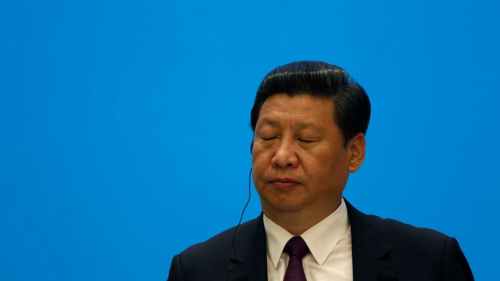Introduction
Today, as we reflect on the life and legacy of Dr. Martin Luther King Jr., we are reminded of his unwavering commitment to justice, equality, and the dream of a world where every individual can live free from oppression. However, as we turn our attention to the present-day situation in China, it is evident that the Chinese Communist Party (CCP) has escalated its suppression of the people, dismantling the rule of law and transforming the nation into a surveillance state. Dissent and resistance are met with swift arrests and imprisonment, leaving many human rights activists languishing behind bars, their voices silenced. On this special day, it is imperative for democratic nations worldwide to unite against the CCP's tyranny and support the Chinese people in their pursuit of democracy.
The Urgency of the Situation
In the current context, China's population comprises one-fifth of the global population, making its political trajectory of paramount importance. The transformation of China into a democratic nation is not merely a domestic concern but a crucial step toward strengthening the global democratic front. The oppression perpetuated by the CCP not only violates the fundamental rights of its citizens but also poses a significant threat to international peace and security. It is incumbent upon democratic nations to stand together against the CCP's authoritarian regime, as the fate of 1.4 billion people hangs in the balance.
The Call for Unity
Dr. King's vision of a world free from oppression resonates strongly today, as we witness the struggles of the Chinese people for their basic rights and freedoms. The international community must come together to confront the CCP, employing diplomatic, economic, and other non-military means to bring about change. Unity among democratic nations is crucial in addressing this global challenge. A united front will not only amplify the collective voice against the CCP but also demonstrate the strength of democratic values and principles.
The Role of International Support
Supporting the people of China in their fight for democracy involves more than just moral solidarity—it necessitates concrete actions. Democracies worldwide should collaborate in imposing targeted sanctions against the CCP and its leaders, holding them accountable for human rights abuses. Economic pressure, travel restrictions, and asset freezes are effective tools to exert influence and compel the CCP to reconsider its oppressive policies. By doing so, the international community sends a clear message that human rights violations will not be tolerated, and that the path to global leadership requires adherence to democratic principles.
The Plight of Human Rights Activists
Many Chinese human rights activists have paid a heavy price for their courage in challenging the CCP's authoritarian rule. These individuals, often referred to as the backbone of the nation, are the embodiment of Dr. King's dream for a just and equal society. Their imprisonment serves as a stark reminder of the urgent need for international intervention. The global community must advocate for the release of these activists and demand justice for the countless individuals persecuted for their beliefs. By standing in solidarity with them, democratic nations can contribute to the dismantling of the oppressive machinery that stifles dissent in China.
The Strategic Importance of China
China's influence on the global stage is undeniable, both economically and politically. Democracies must recognize the strategic importance of a democratic China. A democratic nation of such magnitude would not only be a beacon of freedom for its citizens but also a powerful ally in advancing the democratic cause globally. By fostering democratic values within China, the international community can contribute to the creation of a world order based on justice, equality, and respect for human rights.
The Responsibility to Uphold Democracy
The responsibility to uphold democracy extends beyond national borders. Democracies must remain vigilant against the erosion of democratic principles globally. Dr. King's teachings emphasize the interconnectedness of humanity, and in this interconnected world, the flourishing of democracy in one nation strengthens the democratic fabric everywhere. The pursuit of democracy is a shared responsibility, and democratic nations must act in concert to ensure that the flame of freedom continues to burn brightly.
Conclusion
As we commemorate the legacy of Dr. Martin Luther King Jr., let us not only reflect on the progress made in the fight for civil rights but also acknowledge the ongoing struggle for democracy in China. The time has come for the international community to unite against the CCP's oppression, using all available means to support the Chinese people in their pursuit of freedom. In honoring Dr. King's dream, we must actively work towards making that dream a reality for every individual, regardless of their nationality or circumstance. The battle for democracy in China is not just a Chinese struggle; it is a global imperative for a world that values justice, equality, and human rights.





